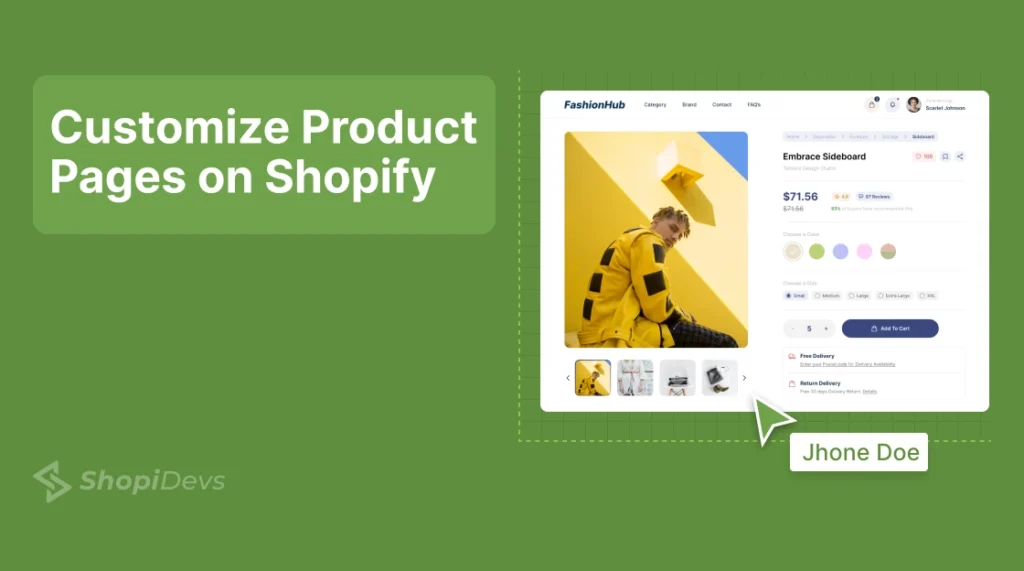You’ve spent a few weeks and invested thousands of dollars to develop and set up your Shopify store. Yet, when customers land on your product pages, they don’t convert. Wait, you may need to customize your product page.
Don’t know how to customize product pages on Shopify? Worry not, I’m here! There are 3 different methods to customize product pages. First – using the theme editor, second – customizing the code, and finally – using the Slider Revolution App.
Let’s explore step-by-step guides for 3 different methods to customize your product page.
Importance of Customizing the Product Page on Shopify
Before diving into the process of customizing a product page, ask yourself why you are going to do it. Maybe there is/are one or two answers like better look, provide info, etc. But look at the list below how many ways you will benefit by customizing product pages:
- Clear Product Details: Break down complicated product information into easy-to-understand language. It helps customers to make informed decisions by getting precise and detailed information.
- Improved User Experience (UX): A customized product page makes it easier for visitors to navigate and find what they need.
- Search Engine Friendly: Identify what people look for, then optimize your product based on those keywords. It will help to improve your Shopify store’s search engine visibility and increase visitors.
- Increased Trust and Credibility: A customized product page with lifestyle builds customer confidence and trust in your brand.
- Increase Conversion Rates: A well-organized product page with customization can increase the conversion rates significantly.
You have understood how customized product pages significantly increase sales in the store. But what do you need to make a high-converting product page?
15 Must-Have Elements for a High-Converting Product Page on Shopify
Here are 15 elements that you need while customizing the product page to make it professional.
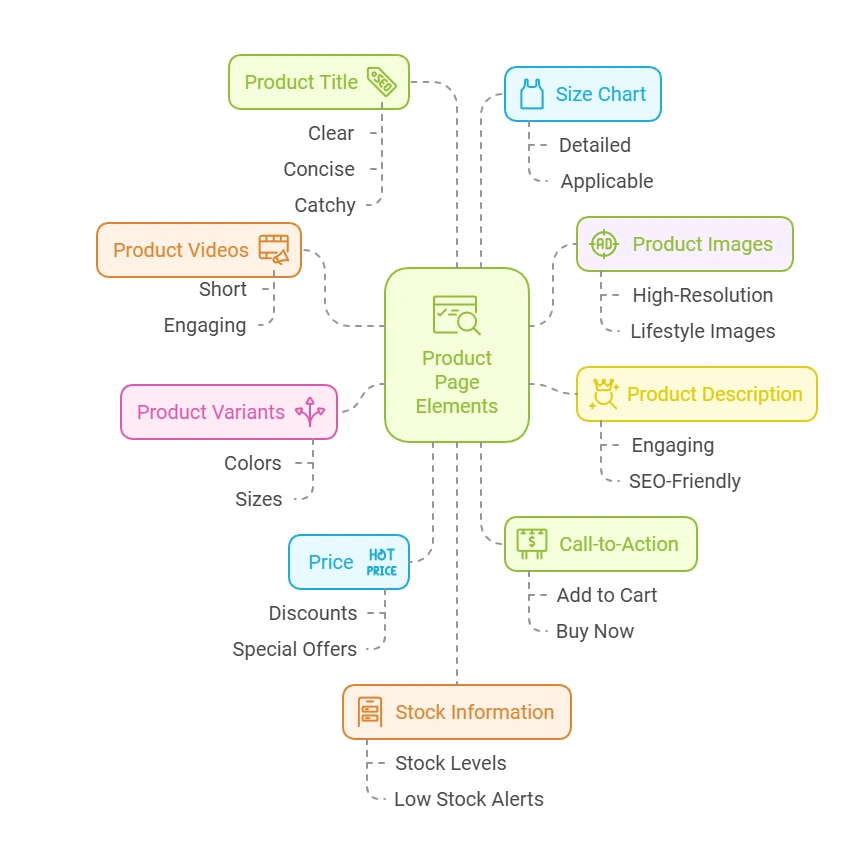
- Product Title: A clear, concise, and catchy title that highlights the product’s main feature or purpose.
- High-Quality Product Images: Use high-resolution sharp product images with the best image size. Also, enable zoom options and add images lifestyle images to enhance customer trust.
- Product Description: Write engaging and SEO-friendly descriptions that explain the product’s features, benefits, and how it solves the customer’s problem.
- Product Variants/Options: Include customizable options and product variants like colors, sizes, or styles. This allows customers to choose what suits them best.
- Price: Show the price clearly, including discounts, special offers, or compared prices to grab attention.
- Call-to-Action (CTA) Button: A standout button like “Add to Cart” or “Buy Now” encourages users to take immediate action.
- Product Videos: Add short, and engaging product videos on Shopify that demonstrate the product. It provides a better understanding of your products and improves the user experience of the product page.
- Product Size Chart (if applicable): Include a detailed size chart for products like clothing or footwear to help customers select the right fit.
- Product Availability/Stock Information: Show stock levels or “low stock” alerts to create urgency and transparency.
- Related Products: Suggest similar items to encourage cross-selling and increase overall sales in the store.
- Shipping Information: Provide estimated delivery times, shipping costs, or discounts for transparency.
- Return and Warranty Information: Clearly mention your exchange, and warranty return policies.
- Social Sharing Buttons: Make the sharing process easier by adding social sharing buttons. So that customers can share your products easily with their friends and family.
- FAQ Section (if applicable): Answer common questions directly on the product page to reduce confusion in the buying process.
- Trust Badges: Display secure checkout symbols, payment options, or satisfaction guarantees to satisfy customers.
After gathering these elements on your computer, we are now ready to customize product pages.
3 Methods to Customize Product Pages on Shopify
In this blog, I have attached 3 different methods to customize product pages on Shopify. So that, anyone can transform their product pages based on their technical knowledge about a Shopify store.
| Method | Difficulty Level | Key Features | Best For |
| Shopify Theme Editor | Easy | No coding knowledge is required, just add sections | Beginners who want quick and simple (basic) changes |
| Code Customization | Advanced | Full control over product page design and layout | Professional website developers |
| Slider Revolution App | Intermediate | 300+ templates, dynamic sliders, and animations | Store owners who need unique, visually appealing pages |
Method 1: Use Shopify Theme Editor to Customize Shopify Product Page
Using the Shopify theme editor is the easiest way to customize your product page. Of course, you won’t use any advanced features in this method, but it is best for simple edits.
Step 1: Log in to Your Shopify Store
- Log in to your Shopify store or your Shopify partner account to access your client’s store.
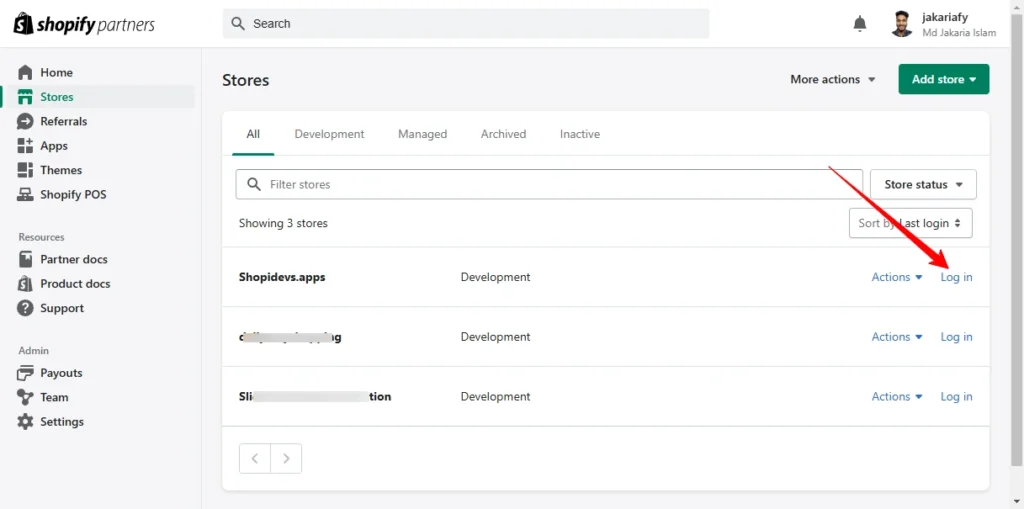
Step 2: Go to the Product Page That You Need to Customize
- Click on the “Products” > Select the product page that you want to customize.
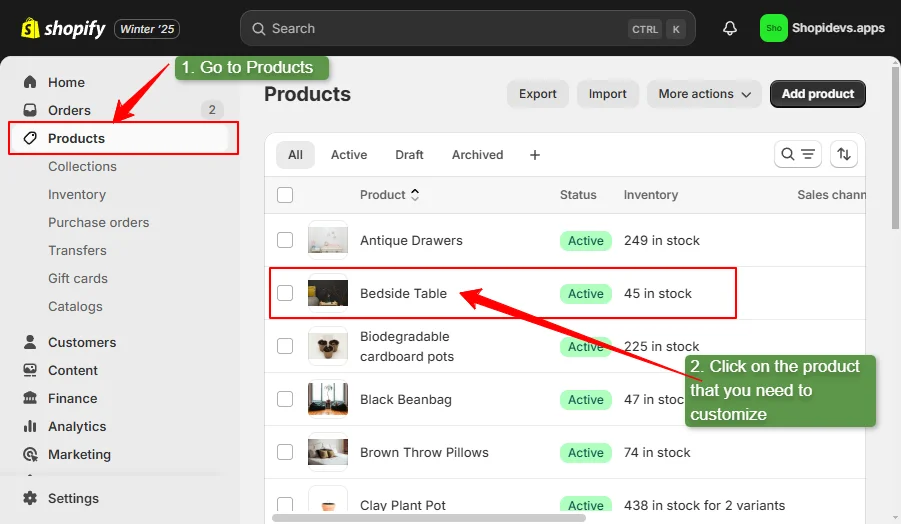
Step 3: Customize the Product Page on Shopify
In this step, you can follow the list of elements of a product page on Shopify or e-commerce website.
- Optimize the title of the product page using the product name.
- There are a lot of options on the description section of a product page on Shopify. You can customize the product page by adding images, videos, headings, listings, variants, etc.
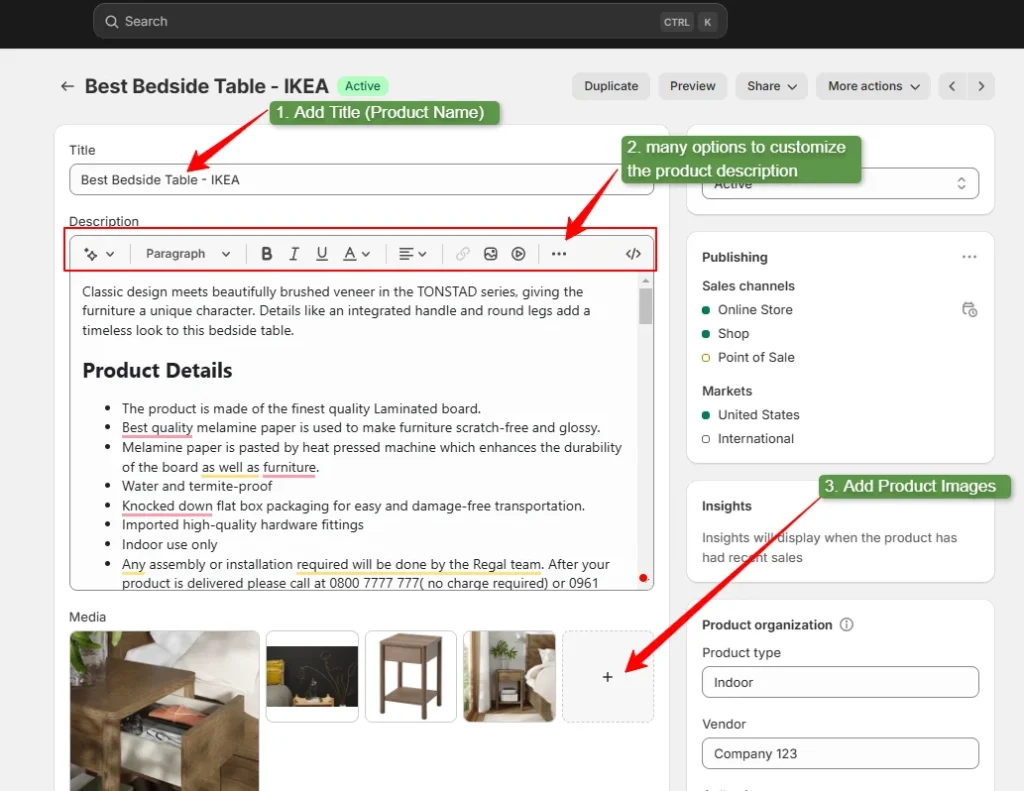
Step 4: Optimize the Product Page for Search Engines and Save
- If you customize and optimize your product page for search engines, you will get organic visitors to the store.
- So, craft a catchy and engaging title to customize the product page title. Though Shopify allows to use of 70 characters for the title, I never recommend using more than 60 characters. Because Google and other search engines show only 600 px (60 characters) on the SERPs.
- Provide a meta description of your products in under 160 characters.
- Then optimize the URL by providing the product name, so that search engines can easily understand the page.
- Then click on the “Save” button.
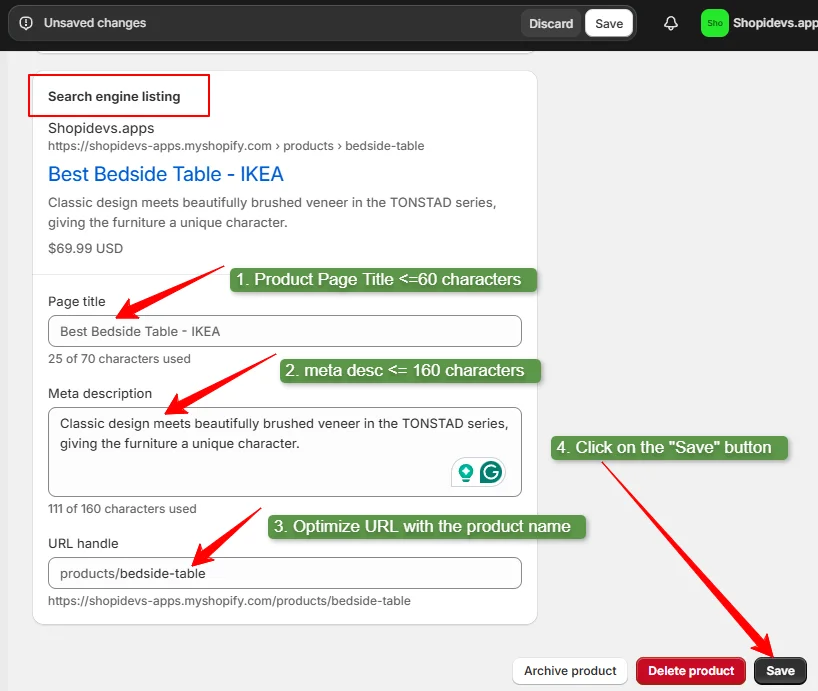
Step 5: Visit and Check the Customized Product Page on Shopify
- Visit your product page link to test and view whether your customized product page looks great or not.
By following these 5 simple steps, you can easily customize the product page on Shopify. But as you know there are limited features to customize. So, if you want to customize with advanced features, then follow our 2nd method.
Method 2: Code Customization to Edit Product Page on Shopify
If you want to customize the product page as per your idea and imagination, then custom coding is the only solution. You will have 100% control over the product page if you add and modify custom code.
Step 1: Learn about the Requirements Before Editing the Code
As ‘Theme Code Editing’ is the most powerful way to customize the product page, it requires advanced coding knowledge. Let’s explore what technical skills you need to have for customizing a product page on Shopify.
Technical Skills Required:
- Basic understanding of HTML
- Fundamental knowledge of CSS
- Familiarity with JavaScript
- Willingness to learn Shopify’s Liquid syntax
Essential Tools:
- Shopify admin access
- A reliable code editor (e.g., Shopify default code editor)
- A backup copy of your theme
- Patience and attention to detail
If you don’t have these skills, then ShopiDevs highly recommends hiring a professional Shopify developer.
Step 2: Access Your Theme Code
- Log in to your Shopify store admin panel.
- Navigate to Online Store > Themes.
- Click “(…)” 3 dots > “Edit code”.
- Always download a backup theme before editing anything.
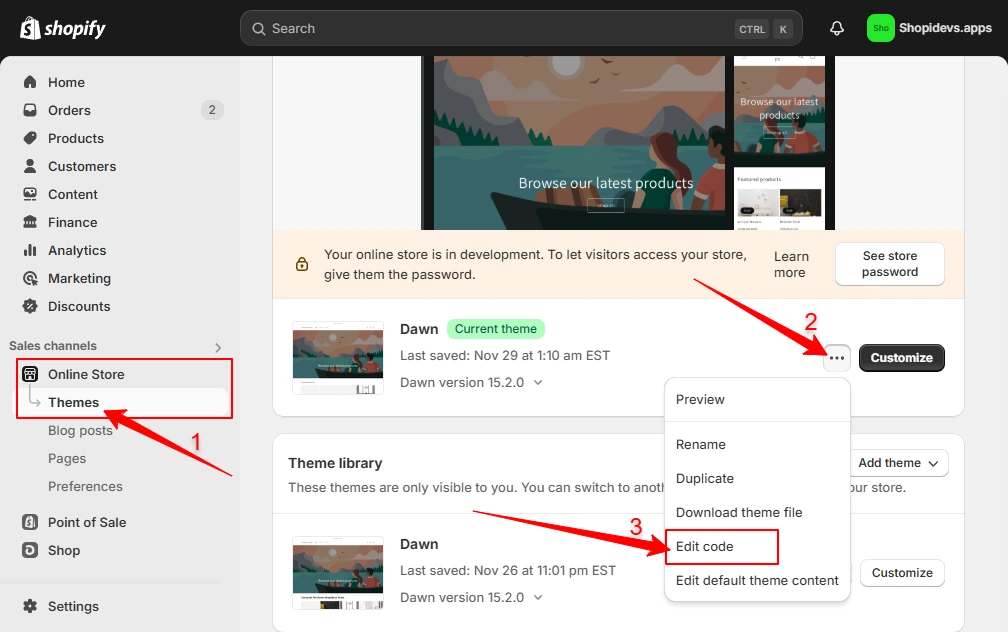
Step 3: Navigate to the “Product.json” file
- Click on the “Templates”.
- Then find the </>product.json file.
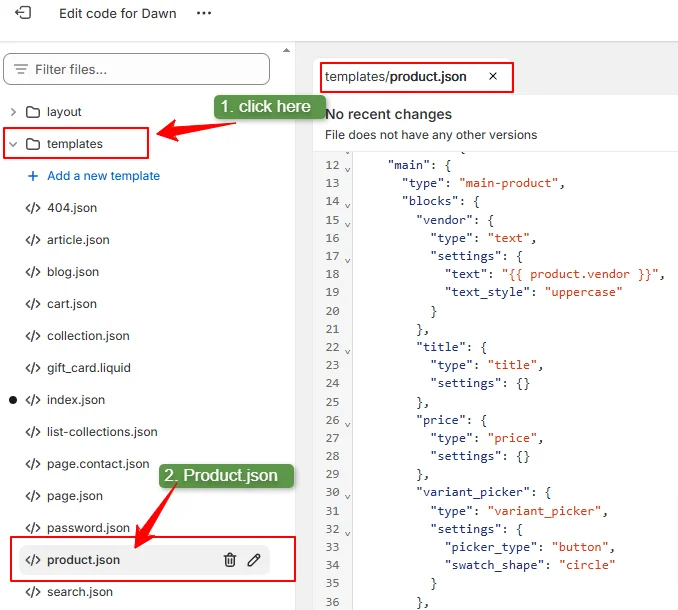
Step 4: Modify the Code for the Product Page and Preview
- Open the “Product.json” file.
- Identify the section you want to customize on the product page.
- Make necessary changes to customize the product page on Shopify.
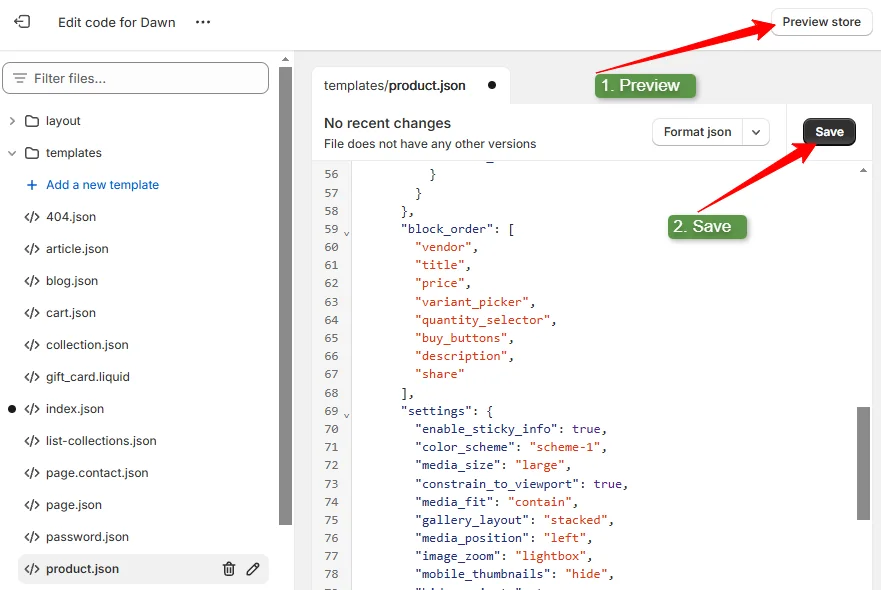
- Click on the “Preview Store” button.
- Remember to test on various devices like Mobile, desktops, and tablets. Also, attention to detail in every element on the product page to validate your custom code.
- If you find everything well, then click on the “Save” button.
By applying your technical knowledge and following these 4 steps, you can customize the product page on Shopify. However, consider hiring a professional Shopify expert for advanced customization on your product page.
Not interested in hiring an expert due to the time-consuming process and huge cost? Using a product page customization app could be a great solution for you.
Method 3: Use the Slider Revolution App to Customize Product Pages on Shopify
Shopify apps “Slider Revolution and Sections” offer a wide range of customization options on your products page. You can use 300+ templates to customize product pages and showcase products. Here is a step-by-step guide on how to customize product pages on Shopify:
Step 1: Install the Slider Revolution App
- Go to the Shopify app store > the search for the “Slider Revolution & Sections” app.
- Click on the “Install” button to install the product page customizer app.

It will automatically redirect you to the Slider Revolution app dashboard.
Step 2: Choose a Product Template
- Click on ‘My Sliders’ > ‘New Slider from Templates’.
- Here you will have 300+ templates for different sections of the product page.
- Install multiple slider templates based on your needs for the product page.
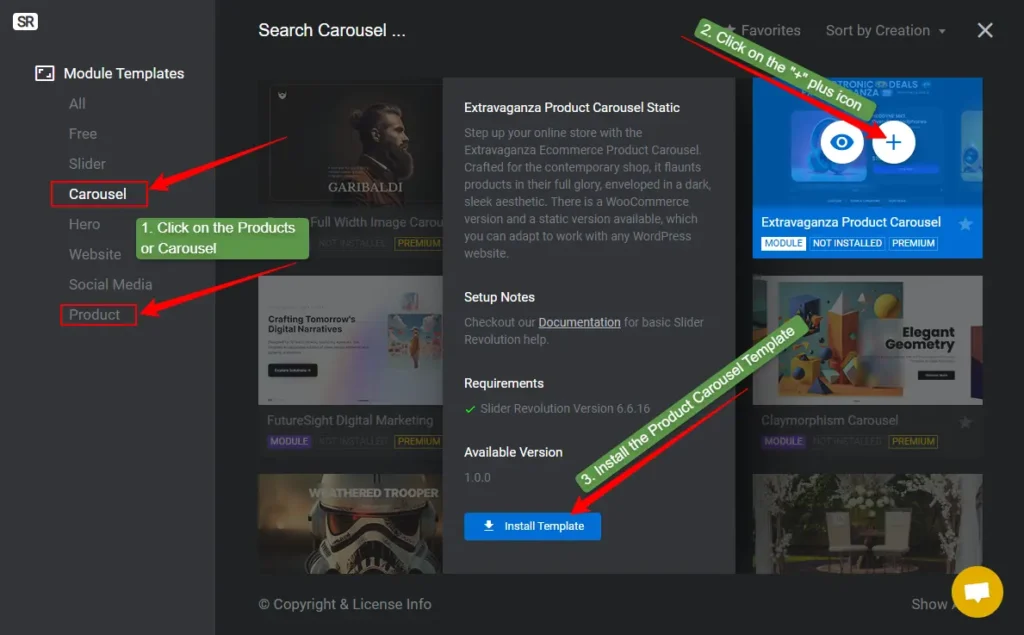
Step 3: Customize the Product Slider and Copy the Shortcode
- Click on the “Pen” icon from the ‘My Slider’ dashboard to customize the template.
- Customize the title, image, animations, and other elements of the template for your product page.
- Click on the “Save” and copy the shortcode.
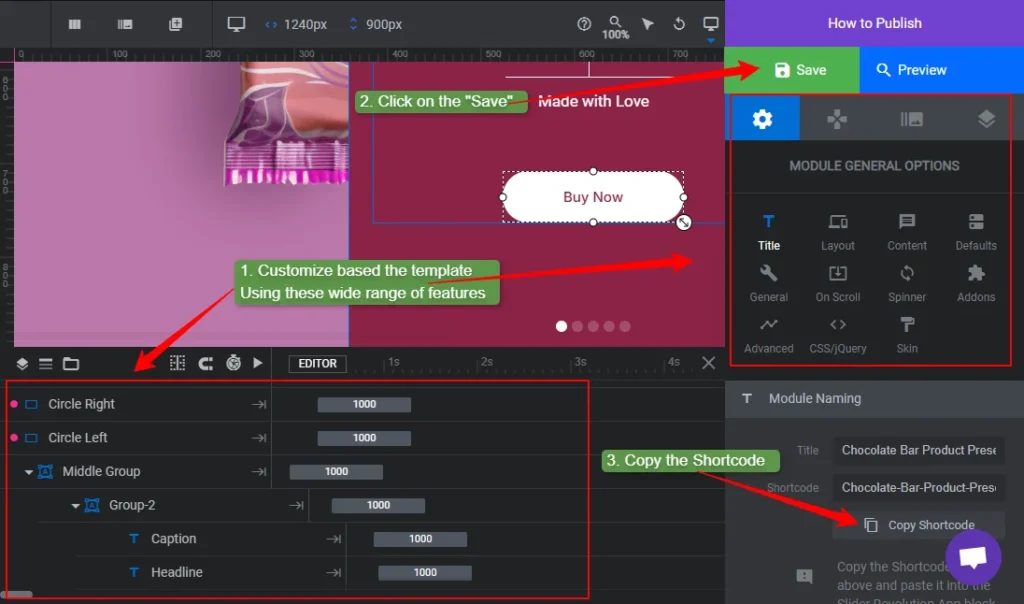
Step 4: Create Product Page Template
Now you have two options to customize your product pages: first, customizing a single product page and customizing the product page template. I will create a single product page like a Landing Page, but you can assign more products to this template.
- Click on “Online Store > Themes > Customize”.
- Click on the “Homepage > Products > Create Template” to add a new custom template for the product page.
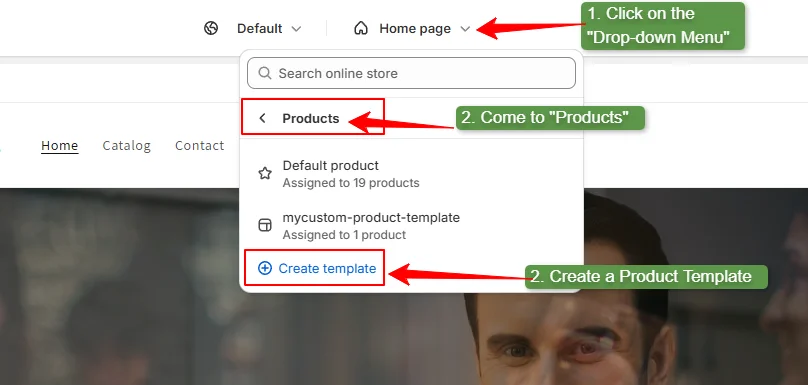
Step 5: Configure the Slider Revolution App with the Shopify Store
- Go to the Shopify store dashboard.
- Click on “Online Store > Themes > Customize”.
- Then go to “App Embeds > Enable the Slider Revolution App”.
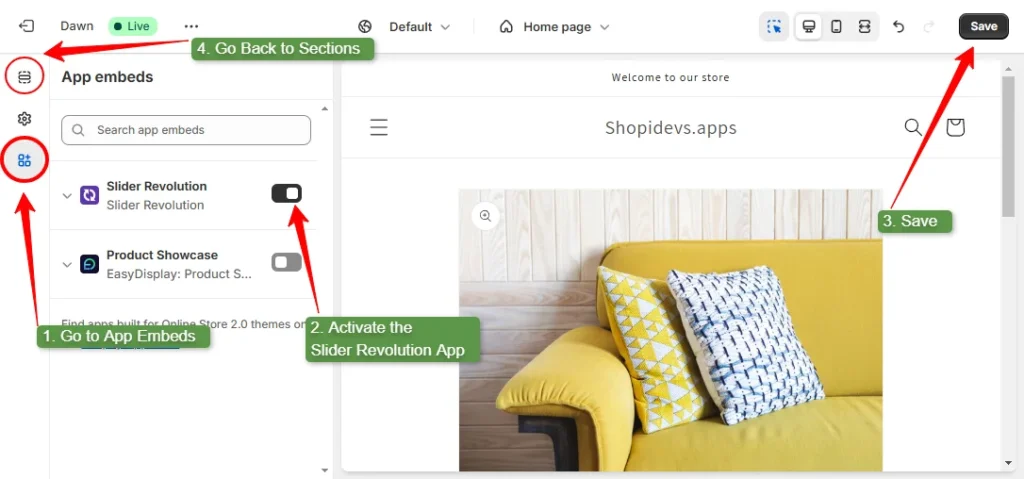
Step 6: Add Slider Sections & Paste the Shortcode
- Click on the “+” icon or “Add Section” to configure sliders (we have created) to the product page.
- Go to the “Apps” section.
- Then click on the “General Slider” to add the block.
- Now click on the “General Slider” block.
- Paste the shortcode you have copied in “Step 3”
- Finally, click on the “Save” button to save the customized product page.
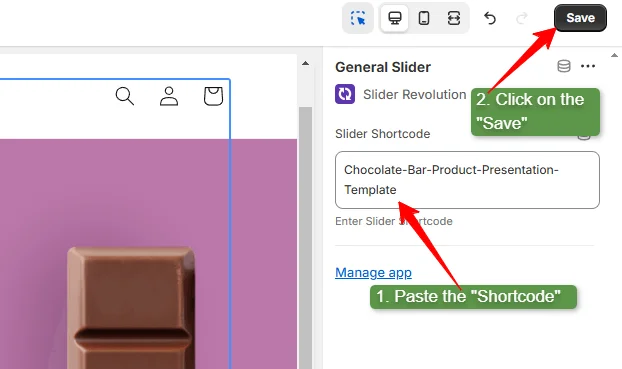
Step 7: Add Other Elements and Sliders on The Product Page
- Now add other sliders like image sliders, video sliders, product carousels, testimonials, etc to the product page.
- If you want to add more sliders, follow the same process (Install template > Customize template > Copy the shortcode > Add an Apps block > Paste the shortcode > Save)
- Also, you can add other elements from the default theme options.
- “Save” the customized product page templates.
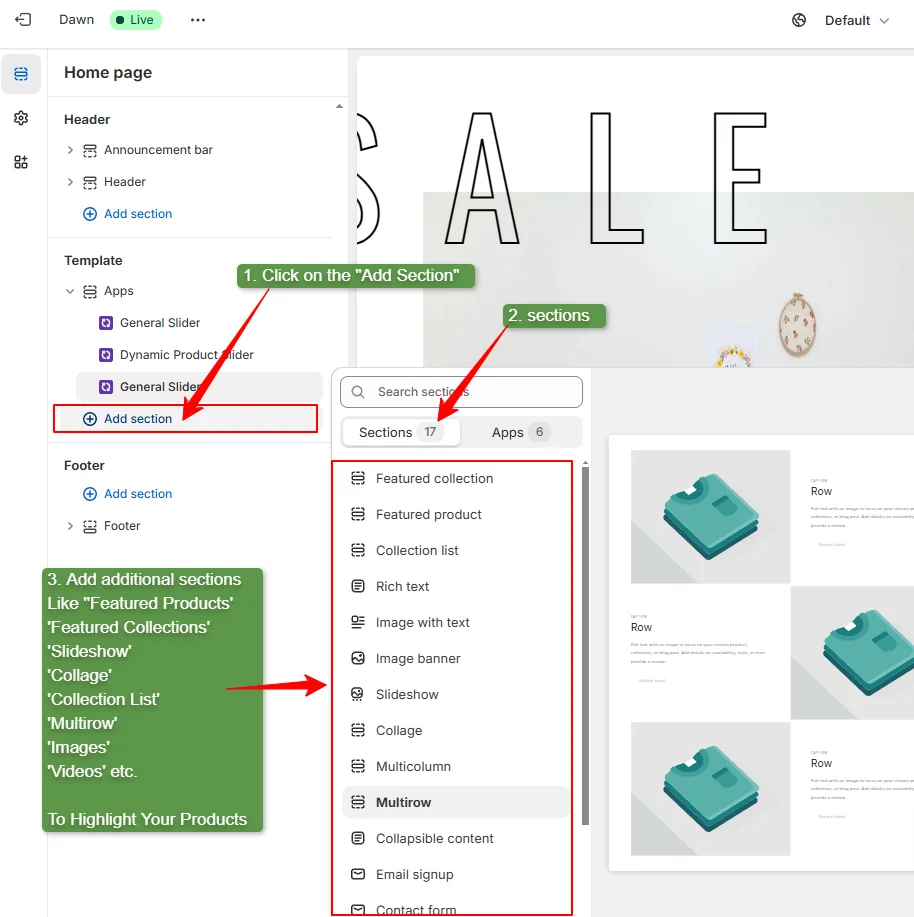
Step 8: Assign Products to the Customized Product Page
- Go back to the Shopify store dashboard.
- Click on the products > Select products that you want to customize.
- Choose the template that you have designed with Slider Revolution.
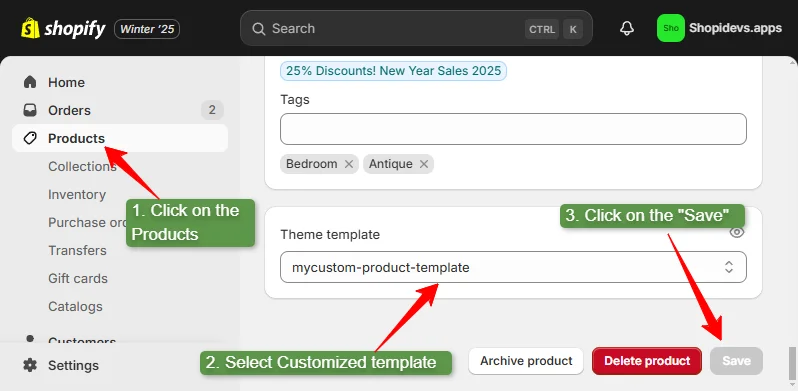
Step 9: Preview the Customized Product Pages
- After setting up everything your customized product page is ready now. Let’s preview the page:
Note: If you have any issues while customizing the product page, contact our support team for free. They will guide you step-by-step on how to customize it with the Slider Revolution App.
5 Inspiring Shopify Product Pages Examples
Here is a list of 5 product pages that are designed with the Slider Revolution and Section app. You can visit these stores to review how these product pages look now:
1. Webber Naturals
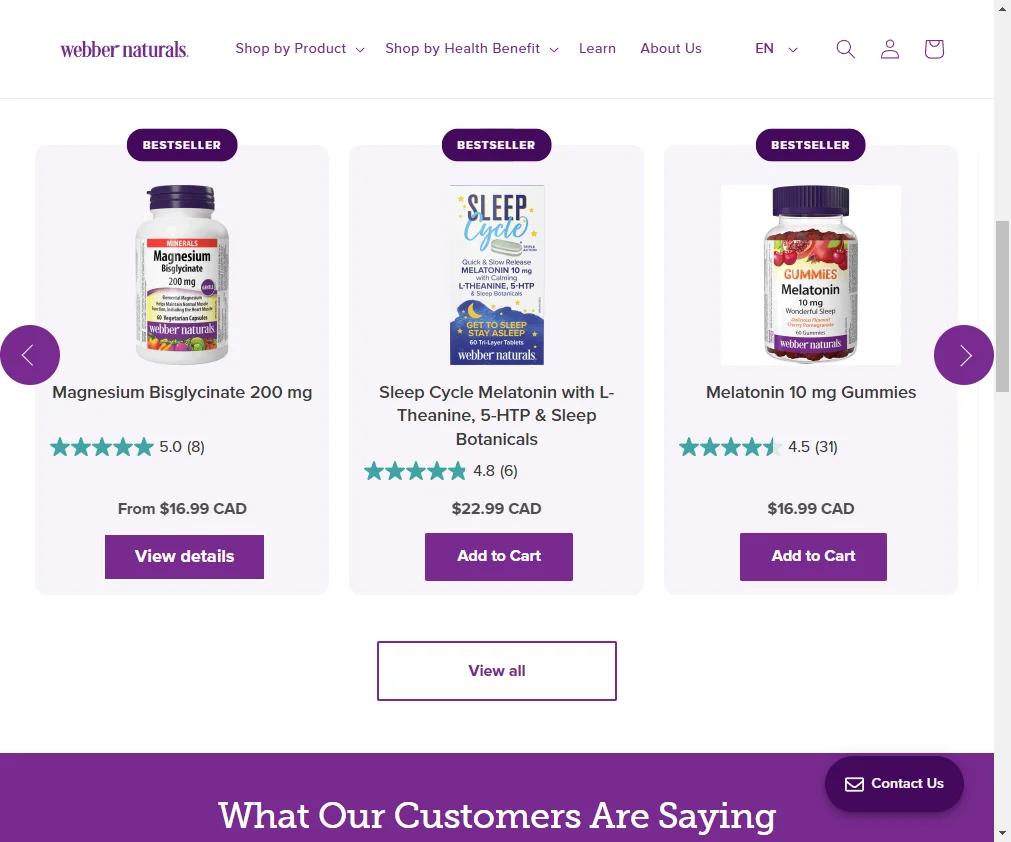
2. GAT Sport

3. Wonz
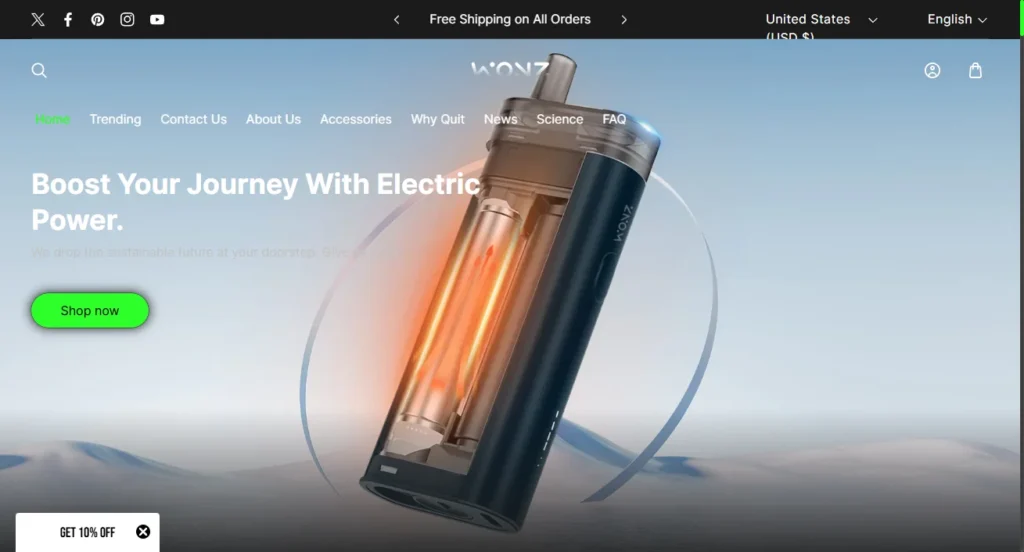
4. En Genius
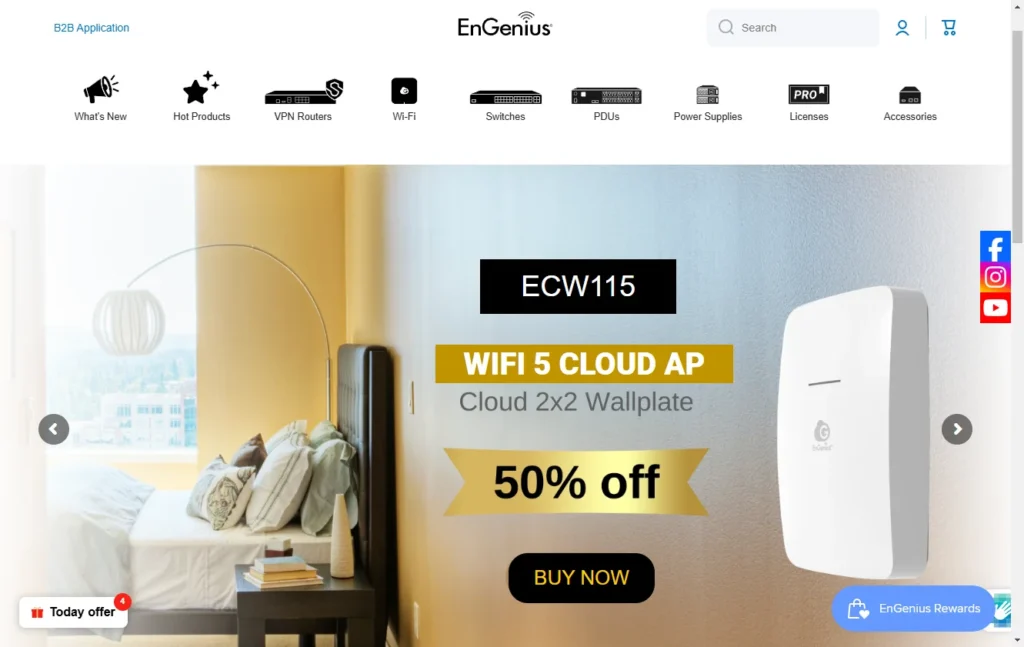
5. Sample Prophets
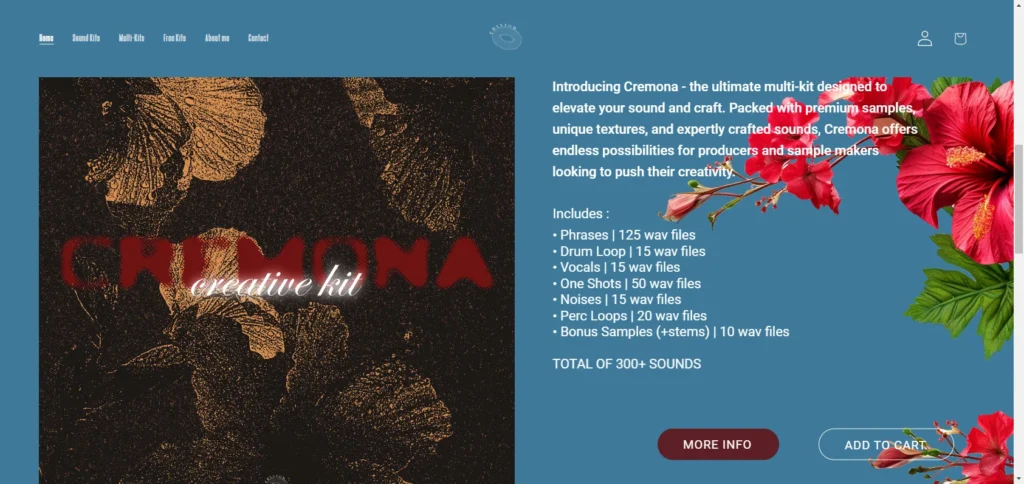
Conclusion
Now you are at the end of the “How to customize product pages on Shopify” blog. Here I have provided 3 different ways to customize product pages. You can use any one method from these three based on your needs and experience.
If you are a beginner and need basic customization on the product page, then go with the in-build Shopify theme editor. On the other hand, if you are a developer with advanced coding knowledge, then add/modify custom code to customize the product page.
In the final method, I have shown a product page customization using the Slider Revolution App. It doesn’t matter what level of experience you have on Shopify. You can do advanced levels of customization with animations on an easy dashboard.
FAQs
What is a Product Page on Shopify?
A product page on Shopify is where customers view details about a specific product. It includes information like the title (product name), price, description, images, and options such as size or color. This page helps customers decide whether to buy your product.
Can You Customize the Shopify Product Page?
Yes, you can customize almost everything on your product pages on Shopify. Shopify offers tools like the Theme Editor for simple changes. You can also modify the code or use apps to create a unique design that fits your brand.
How Do I Edit All Product Pages on Shopify?
Follow these steps to edit all product pages:
- Log in to your Shopify store.
- Go to “Online Store > Themes > Customize” in your Shopify admin.
- Choose Product from the dropdown > choose the template where all products are assigned.
These changes will automatically apply to all your product pages, saving you from editing each page one by one.
Jakaria is an SEO Content Writer in Shopify, Ecommerce, WordPress, and Tech Industry with 5+ years of experience. He specialises in developing engaging, helpful content by simplifying complex topics into an amazing story for B2B, SaaS, and Shopify businesses. He’s also passionate about staying updated on growth marketing strategies and Shopify trends.
